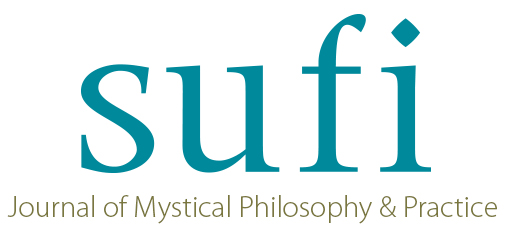Knowledge of the Self
by Alireza Nurbakhsh
Since the time of Plato (d. 347 B.C.E) knowledge has been generally defined in the Western tradition as a justified true belief. The justification occurs either through empirical evidence or a discursive method of mathematics. We know that the sun is shining if and only if the sun is shining and we perceive this to be the case. We also know that 2+2=4 is true by understanding the meaning of “2” and “4” and the plus sign.
Following the same tradition, the French philosopher René Descartes (d. 1650) classified human knowledge into two categories: empirical knowledge which is based on sensory perception and mathematical knowledge which is non-empirical and is based on the definitions of our mathematical concepts and rules. For Descartes, the knowledge of the self is empirical knowledge, immediately presented to us through introspection: I know I am in pain because I feel pain. Although Descartes could doubt the existence of everything, including the truth of mathematical statements, he could not doubt that he was doubting. Since for Descartes doubting is a form of thinking, he then arrived at his famous statement: “I think, therefore I am.” Knowledge of the self and its indubitable nature is thus the cornerstone of Cartesian philosophy.
[wcm_restrict plans="Sufi Journal Digital Edition, Sufi Journal Digital Edition old"]
The 18th-century Scottish philosopher, David Hume (d. 1776) famously used the same method of introspection to argue that the perception of self is an illusion. By using introspection, he could only “perceive” various sensations at any given time without a self to bind them together.
With the rise of modern psychology and the Freudian notion of the unconscious and the subconscious mind, the study of the self has entered the scientific domain. We now have many theories relating to how the human mind works, explaining things ranging from cognitive abilities, to the sources of our anxieties and fears, to what makes us happy and content.
From a modern scientific point of view, understanding oneself is to understand how the cultural environment in which one develops and how the character traits of our parents and those around us have shaped our psychological traits or personality. Understanding ourselves then means understanding our fears, hopes and anxieties, as well as our other character traits and how we came to possess them. This in turn will help us to come to terms with our emotions and cognitive capacities in an effective way. Indeed, more and more people in the West engage with a therapist as a way to acknowledge and mediate their emotions, regain their psychological health or simply to understand themselves better.
Self-knowledge is also part of all major western religions and eastern traditions such as Buddhism, Hinduism and Sufism, but as it relates to an experience of the oneness of all things, not individual identity. From a mystical point of view, self-knowledge is the understanding that the self is illusory and that there is only one reality of which each person or individual forms an insignificant and indistinguishable part. The often used examples of a drop in an ocean or a candle flame placed before the sun may illustrate this point. The nature of reality here is water or light, and the drop or the candle flame are only vehicles expressing these realities. From the point of view of an “enlightened” drop, there is no distinction between “I” and “other” as there is only one reality, namely “water.” By the same token, from the standpoint of an enlightened person, the distinction between “I” and “others” disappears as there is only one reality, namely “consciousness” or “being.”
In a story relating to the Buddha himself, it is said that when he attained enlightenment at the Bodhi-tree, the god of Death and Desire approached him and displayed to Buddha his three beautiful daughters, Yearning, Fulfillment and Heartache. Had the Buddha thought in terms of “I” and “they” the god would have been able to unseat him, but instead the Blessed One remained unmoved as he had lost all sense of things being separate from one another; for him there was neither an “I” which desired nor a “they” to be desired. Thus, the temptations failed.
In Sufism, to know oneself means to know that our common experience of self as a distinct entity is an illusion. It is to experience the non-existence or annihilation of the self (fana) through love of the Beloved. The illusion of self has to be shattered in order to experience Oneness of Being. Farid al-Din ‘Attar, the 12th-century Sufi poet, in his Conference of the Birds refers to the state of self-knowledge as the third station in the seven-stage journey towards the Truth. When one reaches the stage of self-knowledge:
He sees the core, not the outer layer,
He does not see himself anymore, only the Friend.
Whatever he looks at, he sees the face of the Beloved,
And every atom reminds him of his Beloved.
In both Sufism and Buddhism, love or compassion and detachment from the world are prescribed methods to help one dislodge the sense of self and to realize it is an illusion. The path of love and compassion requires the seeker to treat others as if they are part of her; to feel others’ pain knowing it is her own. The path of detachment requires one to relinquish the fruit of one’s actions, to perform a task to the best of one’s ability without expectation of a reward. Focusing on the process without paying attention to the benefit that one may gain at the end of the process is the meaning of being in the world and not of the world.
It goes without saying that for the person who has realized that the self is illusory, participating in the world is not a difficult task. Like Buddha, the enlightened person “knows” at a deep level that there is no distinction between “I” and “others,” which makes it easy to reject the constant temptation that “I” is real and is distinct from “others.”
In Sufism, to know oneself means to know that our common experience of self as a distinct entity is an illusion. It is to experience the non-existence or annihilation of the self (fana) through love of the Beloved.
But for a person who has not experienced the illusory nature of the self, it is a constant endeavor not to fall into the trap of “I” and “other.” Our social systems and cultural norms require us to differentiate between ourselves and others. One’s rights and obligations are not the same as one’s neighbor’s. Thus, in order to survive in this world we have to differentiate between “I” and “other.” We cannot tell our landlord, for example, that we will stop paying him rent because there is no distinction between us and him. This argument will get us evicted.
But this should not be a cause of despair. Attaining spiritual truth often requires that we do not accept cultural norms at face value. Nevertheless, I believe, there is a more profound reason why we should participate in the world which views each human as a distinct reality and separate from others. We cannot discover our humanity and the ability to love if we withdraw from the world. One cannot understand the act of compassion if one is living in isolation or with like-minded people who do not challenge one’s point of view and understanding of the world. Acting compassionately becomes meaningful in our encounters with our adversaries. It is of course good to act compassionately towards others who share our values and beliefs, but it is quite remarkable to act with kindness towards people who completely reject one’s point of view to the point of being totally biased in their treatment of us.
In one sense it does not make any difference whether we adopt the common view that the self is real or a Sufi/Buddhist view that it is an illusory construct. We still experience pain, hunger, anger and joy. We still have to deal with others in the world, make a living and pay our taxes. If there is any difference, I suggest that it would be in our attitudes.
If one experiences the illusory nature of the self, fundamentally such a person “understands” that there is no distinction between herself and others. The attitude of such a person will be to help and preserve others as if they are no different from herself. Acting with compassion and kindness will be the logical conclusion of this attitude. The question of whether to treat oneself preferentially in interactions with others will not even arise as there is no experience of “self” as a separate entity from others.
In contrast, the experience of “self” as a real entity with each individual “self” being distinct and separate from others, does not naturally lend itself to a compassionate and kind attitude. There is no natural reason to help others if one’s self is “real” and in a fundamental sense different from other selves. If we adhere to a reality of each “self” as being distinct from other selves, with each possessing a series of unique wishes and desires that are not necessarily shared by other “selves,” the inevitable conclusion is that we promote and satisfy our own self or ego at the expense of others. Hence, human societies have had to devise complex systems of laws to prevent unfair treatment of some human beings by others.
It seems clear that the experience of self as an illusory entity lends itself naturally to human beings having a more compassionate attitude in dealing with other living things. But the question remains of how to cultivate such an experience. Without having the experience, it is not easy to treat others as if they are part of yourself. What can we do to be more receptive to the experience of unity and of seeing ourselves not as separate entities but merely as part of the sea of humanity and the living world?
The Sufis’ response to this question is somewhat paradoxical. For most people, in order to experience unity they must behave as if they are experiencing the self as an illusion. One must act with compassion and love even if one does not “see” the oneness. It is this persistence in acts of kindness and compassion that opens the door to the experience of oneness and exposes our self-identity as an illusion. Only a few fortunate ones get to experience the oneness of all existence effortlessly by the sheer grace of God.
[/wcm_restrict]
PHOTO © ELLEN JANTZEN
RETURN TO ISSUE 96 TABLE OF CONTENTS
[/wcm_restrict] [wcm_nonmember]
To read this article in full, you must Buy Digital Subscription, or log in if you are a subscriber.
[/wcm_nonmember]

